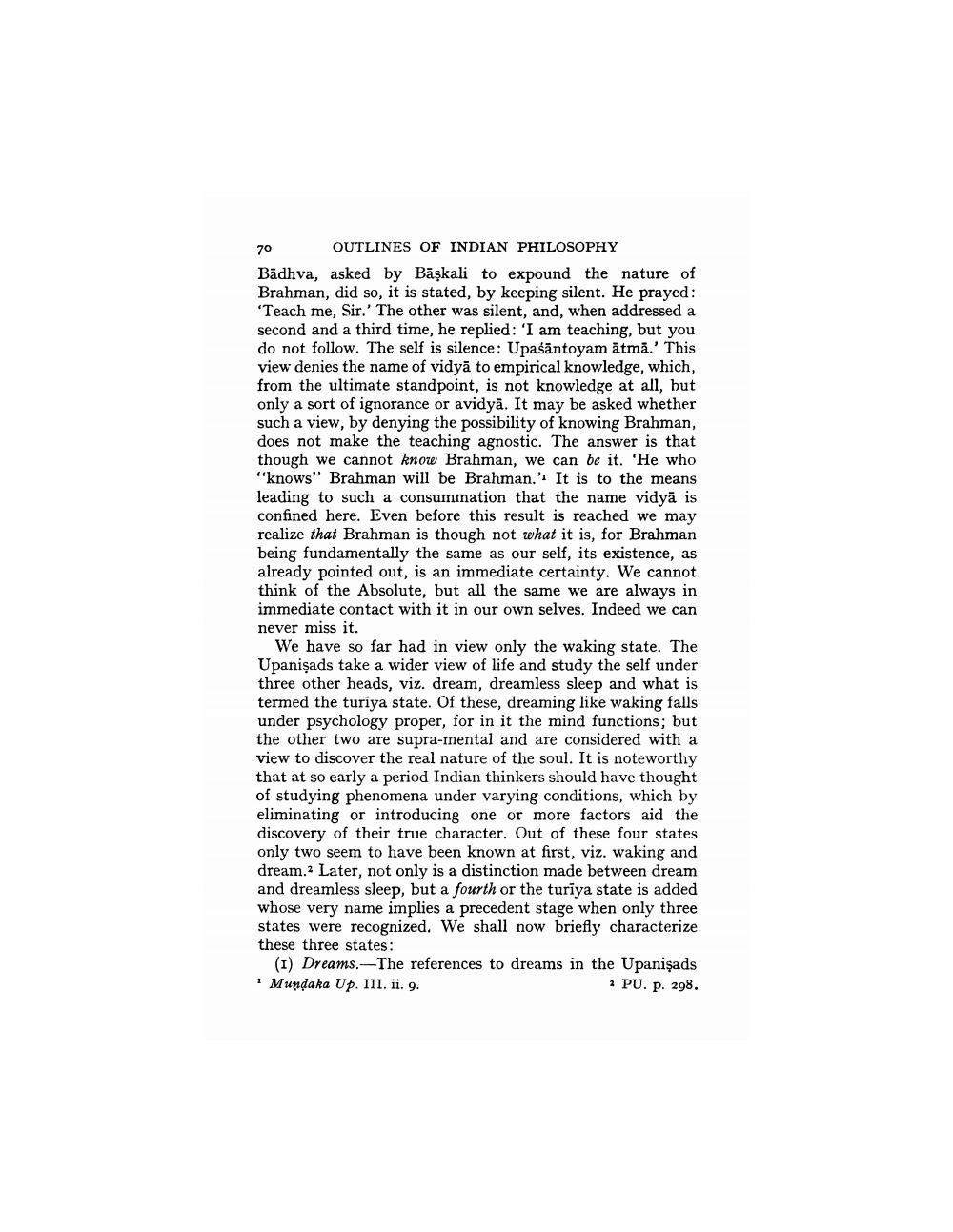________________
70
OUTLINES OF INDIAN PHILOSOPHY Bädhva, asked by Bāşkali to expound the nature of Brahman, did so, it is stated, by keeping silent. He prayed: "Teach me, Sir.' The other was silent, and, when addressed a second and a third time, he replied: 'I am teaching, but you do not follow. The self is silence: Upaśāntoyam ātmā.' This view denies the name of vidyā to empirical knowledge, which, from the ultimate standpoint, is not knowledge at all, but only a sort of ignorance or avidyā. It may be asked whether such a view, by denying the possibility of knowing Brahman, does not make the teaching agnostic. The answer is that though we cannot know Brahman, we can be it. 'He who "knows" Brahman will be Brahman.'. It is to the means leading to such a consummation that the name vidyā is confined here. Even before this result is reached we may realize that Brahman is though not what it is, for Brahman being fundamentally the same as our self, its existence, as already pointed out, is an immediate certainty. We cannot think of the Absolute, but all the same we are always in immediate contact with it in our own selves. Indeed we can never miss it.
We have so far had in view only the waking state. The Upanişads take a wider view of life and study the self under three other heads, viz. dream, dreamless sleep and what is termed the turiya state. Of these, dreaming like waking falls under psychology proper, for in it the mind functions; but the other two are supra-mental and are considered with a view to discover the real nature of the soul. It is noteworthy that at so early a period Indian thinkers should have thought of studying phenomena under varying conditions, which by eliminating or introducing one or more factors aid the discovery of their true character. Out of these four states only two seem to have been known at first, viz. waking and dream.. Later, not only is a distinction made between dream and dreamless sleep, but a fourth or the turiya state is added whose very name implies a precedent stage when only three states were recognized. We shall now briefly characterize these three states:
(1) Dreams.-The references to dreams in the Upanişads Mundaka Up. III. ii. 9.
- PU. P. 298.




